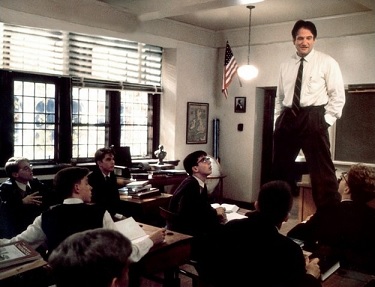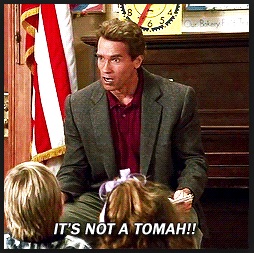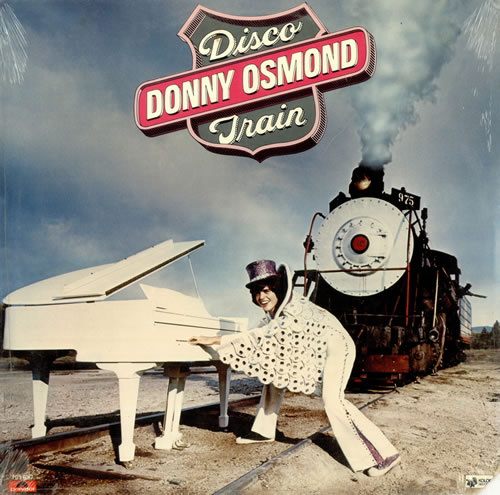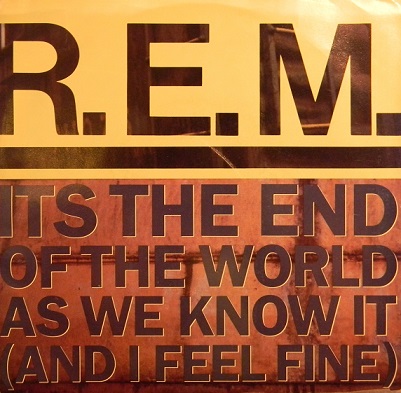[[{“type”:”media”,”view_mode”:”media_small”,”fid”:”1547″,”attributes”:{“alt”:””,”class”:”media-image”,”typeof”:”foaf:Image”}}]]
“Do you see anything positive in life?”
I was taken aback at the very question, posited in response to a Facebook post I made recently which – all things considered – I didn’t even find to be among my most cynical or worried. Go figure.
I responded with a few specific things I found very positive in life – any number of amazing individuals, hockey, great literature, well-written history, They Might Be Giants, and Hideaway Pizza among them. The question did nudge me, though, to do this specific post – one I’ve considered and abandoned a few dozen times, and one perhaps a bit cheesy given the looming onset of that one holiday.
But I am thankful, and genuinely so, for a number of things related to public education, blogging, and such. So that the Universe might let me get back to frothily protesting systemic inanity, I’ll confess a few:
I’m thankful for an online community – particularly on edu-Twitter – which leans towards encouraging, funny, insightful, and bold. Social media can be a chaotic, twisted, foreboding domain. The silence and apathy greeting your best efforts can be crippling.
I am thankful, then, for those who ‘favorite’, and ‘reply’, and re-tweet, and quote. I’m thankful for those who challenge me, those who feed my ego, those who argue with me, and those who simply let me vent. I’m particularly grateful for those who comment on the blog with something other than infected links, ads for sexual services, or home repair contractors in Australia.
Listing individuals is a doomed course – inevitably I’ll leave out someone very dear to me – but it would be irresponsible not to acknowledge Rob Miller, Rick Cobb, and Claudia Swisher – the Big Legit Three of Oklahoma edu-blogging – who treated me like someone valuable with something useful to say, even when I kinda sucked most weeks and was still working out my ‘voice.’
Well-timed warm-fuzzies from national edu-entities like Starr Sackstein and Peter Greene of Curmudgucation provided ridiculous amounts of joy, and when Diana Ravitch tweeted out the original version of Ms. Bullen’s Data Rich Year to her eleventeen zillion followers, I nearly had to change pants.
They were just tweets, but seeing my links going out from those accounts – both in-state and out – was crazy validating. At the same time, it pushed me towards considerations of agency and responsibility – like I should try to not veer too far from reality or suck too badly, because people might actually be reading from time to time.
So I’m thankful for people who treated me like a legit voice at the table even when I was faking it and mostly just needed to work through some anger issues. I’ve since expanded to include obscure historical figures and more potty humor – so… growth.
[[{“type”:”media”,”view_mode”:”media_small”,”fid”:”1302″,”attributes”:{“alt”:””,”class”:”media-image”,”typeof”:”foaf:Image”}}]]
I’m insanely thankful for the #11FF – a semi-contrived community of ‘followers’ who tacitly agree to feign extreme excitement over my approval. A shared inside joke quickly became a real circle of those loved and adored, and whatever good mojo they’ve sent my way, they deserve back a dozen-fold. I have the BEST followers on Twitter – no joke.
The fact that many of them are smarter, kinder, funnier, and much better looking than I am we have collectively agreed to ignore.
Tyler Bridges and Lindsey Lipsky were the first two people to win Blue Serial #11FF shirts, and both posed in them, took appropriate pics, and posted them with the sort of enthusiasm I was hoping the concept would garner. They both also happened to look damn good in them, which didn’t hurt.
Because they set the precedent, the whole thing worked. Later, there were even mugs. See what a little cooperation and ego-tickling can do for the rest of the world?
If we’ve ‘spoken’ regularly on Twitter, I adore you. If I didn’t, we wouldn’t be having ‘those’ conversations. The #11FF thing is fun, but I’m actually a bit of an elitist #@%& in real life. If I bestow valuable minutes upon you, you’re genuinely rare and amazing. Thank you for being such.
I’m thankful for many of my admins in my ‘real’ job. I have that principal you can go sit with in the morning and confess shortcomings or celebrate triumphs, and who won’t respond in platitudes or policies. I walk away with actual ideas or better challenges, inspired not by a poster on his wall or some Chex Mix and a notepad every May, but by genuine interaction with a brilliant professional.
I’m thankful for those assistant principals who want to know what I think should happen and discuss what’s best for students before blindly submitting to bureaucracy.
I’m thankful for building secretaries who are fine with that title even though they’re often the most essential elements of the equation. I’m particularly thankful for one who doesn’t like me some days, but who holds the entire system together so that the rest of us can teach and such.
I’ll take ‘that damn good’ over ‘thinks I’m adorable’ any day.
I’m thankful for a handful of people up the chain of command who hear me out from time to time when something sets me off. I’m thankful for how often their solutions are better than mine, and because even when I don’t buy into their plans or their approach, they’re clearly founded on the same values and convictions as mine.
[[{“type”:”media”,”view_mode”:”media_small”,”fid”:”1550″,”attributes”:{“alt”:””,”class”:”media-image”,”typeof”:”foaf:Image”}}]]
I’m crazy thankful for students who come back or email or Tweet to tell me when something we did in class was helpful for them down the road. My freshmen hate this, because they know every time a former student thanks me for all that document analysis or writing, their lives become more difficult.
I take sick pleasure in this. Pleasure for which I’m truly thankful.
I’m thankful for how many of my students are genuinely likeable, funny, thoughtful, insightful, challenging, interesting, honest, and wildly gifted – even when so many aren’t that enamored with school or the current system.
Urging them on towards ownership of their learning and academic excellence is much like trying to drive a nail into concrete using only fresh croissants – they crumble far too easily and the nail doesn’t always move very much, but the buttery fresh goodness and entertaining flakiness keep me from being overly distraught.
I’m thankful I teach a non-tested subject. I could list that one another dozen times and still not say it enough.
I’m really, really thankful I teach a non-tested subject.
This last part is particularly cheesy. But if you’re reading this right now – in an email or on the blog – all the way to the end coming up right here, then I am thankful for you. More than all that other stuff I said, actually.
I mean, don’t tell those other people I’ve been talking about, but I’ve always kinda liked YOU best. We have a… special thing, don’t you think?
Thank you so much for recognizing pathos, pith, and powerful pedagogy when you find it. Your love for me proves your enduring wisdom and insight – qualities far too rare in this broken world. Keep doing what you’re doing, as well as you’re doing it. And thank you for doing it – seriously.
We’d be lost without you.
Happy Thanksgiving.
[[{“type”:”media”,”view_mode”:”media_small”,”fid”:”1549″,”attributes”:{“alt”:””,”class”:”media-image”,”typeof”:”foaf:Image”}}]]


 OK, strangely I had at least heard of this before. Last year there was a lunch table committed to daily sharing of… whatever one calls ‘fan fiction’ in the anime world. Mostly it was this “Hetalia.” I remember two girls quite dogmatic about Pakistan deserving a main character.
OK, strangely I had at least heard of this before. Last year there was a lunch table committed to daily sharing of… whatever one calls ‘fan fiction’ in the anime world. Mostly it was this “Hetalia.” I remember two girls quite dogmatic about Pakistan deserving a main character.
 Because although I like to think of myself as reasonably bright, this show is in a language I simply don’t speak – and in this case I don’t mean Japanese. It’s a media format that’s really not my thing, and to which I’ve only rarely been exposed. Consequently, someone more familiar with similar shows – or even the comics on which they’re based – might find me a bit… slow. Unappreciative. Perhaps whiney or defiant, depending on how many of my initial reactions I spoke aloud.
Because although I like to think of myself as reasonably bright, this show is in a language I simply don’t speak – and in this case I don’t mean Japanese. It’s a media format that’s really not my thing, and to which I’ve only rarely been exposed. Consequently, someone more familiar with similar shows – or even the comics on which they’re based – might find me a bit… slow. Unappreciative. Perhaps whiney or defiant, depending on how many of my initial reactions I spoke aloud. Watching this show is how my students feel when I ask them to read a great novel for both content and theme, to explore metaphor and the use of language and imagery, or to unravel the roles various characters play in a grander narrative. My experience was somewhat comporable to what happens to them the first time they’re expected to analyze a legitimate historical document, or figure out Causes, Triggers, and Results for major events. It’s not that these things are unreasonable or hard – it’s that they’re not their world.
Watching this show is how my students feel when I ask them to read a great novel for both content and theme, to explore metaphor and the use of language and imagery, or to unravel the roles various characters play in a grander narrative. My experience was somewhat comporable to what happens to them the first time they’re expected to analyze a legitimate historical document, or figure out Causes, Triggers, and Results for major events. It’s not that these things are unreasonable or hard – it’s that they’re not their world.




 Our coaches spend an additional 173 hours a week coaxing a hundred kids at a time to at least break a sweat in their quest to become the next Lebron James or the new Tom Brady.
Our coaches spend an additional 173 hours a week coaxing a hundred kids at a time to at least break a sweat in their quest to become the next Lebron James or the new Tom Brady.  They commit themselves to innumerable evening activities and a steady stream of only those parents unhappy enough to call THEM instead of whichever teacher is ruining their child for life THIS time. They sacrifice any remaining energy enduring interminable meetings with folks carrying longer titles but much shorter job descriptions, then hurry back to catch that one long-term sub and explain yet again why the lesson plans the pregnant teacher left really ARE a pretty good idea to follow – or at least try – please just this once – oh god don’t make me find yet another warm body…
They commit themselves to innumerable evening activities and a steady stream of only those parents unhappy enough to call THEM instead of whichever teacher is ruining their child for life THIS time. They sacrifice any remaining energy enduring interminable meetings with folks carrying longer titles but much shorter job descriptions, then hurry back to catch that one long-term sub and explain yet again why the lesson plans the pregnant teacher left really ARE a pretty good idea to follow – or at least try – please just this once – oh god don’t make me find yet another warm body…  We’re cynical and bitter, but still ‘retweet’ and ‘share’ sappy motivational edu-memes much too freely. Waaayyyyy too many of us are still excited by the idea of test reviews via Jeopardy on the Smartboard or playing that Billy Joel song about not lighting Marilyn Monroe on fire.
We’re cynical and bitter, but still ‘retweet’ and ‘share’ sappy motivational edu-memes much too freely. Waaayyyyy too many of us are still excited by the idea of test reviews via Jeopardy on the Smartboard or playing that Billy Joel song about not lighting Marilyn Monroe on fire. 
 “Yeah!” she said with what seemed to be not-entirely-forced enthusiasm. “I loved them before they were signed. Have you heard their indie stuff?”
“Yeah!” she said with what seemed to be not-entirely-forced enthusiasm. “I loved them before they were signed. Have you heard their indie stuff?” This could be varied in intensity, depending on what you were going for…
This could be varied in intensity, depending on what you were going for… R.E.M. was writing about strangely familiar experiences in enigmatic ways and with a more complex humanity than I was prepared to understand. They used their words and their instruments very differently from either ‘classic rock’ OR the Osmonds, and it wasn’t easy to get my brain around.
R.E.M. was writing about strangely familiar experiences in enigmatic ways and with a more complex humanity than I was prepared to understand. They used their words and their instruments very differently from either ‘classic rock’ OR the Osmonds, and it wasn’t easy to get my brain around.  You’re welcome to enjoy Twilight, but it’s not great literature. Lord of the Flies IS, even if you don’t fully ‘get it’ or like it right away. The History of Alien Sex-Abduction may be a legitimate topic to pursue, but with all due respect to the History Channel, a basic understanding of the Progressive Era is probably a better use of time and resources. Even math is –
You’re welcome to enjoy Twilight, but it’s not great literature. Lord of the Flies IS, even if you don’t fully ‘get it’ or like it right away. The History of Alien Sex-Abduction may be a legitimate topic to pursue, but with all due respect to the History Channel, a basic understanding of the Progressive Era is probably a better use of time and resources. Even math is – I considered breaking this post into two parts – the first full of disclaimers regarding my lack of standing to officially throw around terms like “AP” or “Pre-AP”, and the second to say whatever it is I’m about to say.
I considered breaking this post into two parts – the first full of disclaimers regarding my lack of standing to officially throw around terms like “AP” or “Pre-AP”, and the second to say whatever it is I’m about to say. See, in my part of the country, you commonly find Pre-AP classes offered in core subjects as early as 6th or 7th grade. They fade when actual AP classes become an option, generally around 10th grade. These Pre-AP classes logistically replace ‘Honors’ or ‘Gifted & Talented’, but the goals and strategies are substantially different. Or, at least… they should be.
See, in my part of the country, you commonly find Pre-AP classes offered in core subjects as early as 6th or 7th grade. They fade when actual AP classes become an option, generally around 10th grade. These Pre-AP classes logistically replace ‘Honors’ or ‘Gifted & Talented’, but the goals and strategies are substantially different. Or, at least… they should be.  I can’t think of anything more horrifying than going into a brand new year with new students and pre-labeling them based on choices they made with an entirely different teacher a full 8% of their lifetime ago.
I can’t think of anything more horrifying than going into a brand new year with new students and pre-labeling them based on choices they made with an entirely different teacher a full 8% of their lifetime ago. I certainly understand how difficult it is to lead a class through an advanced curriculum and facilitate higher level thinking skills when some members of that class lack the knowledge, know-how, or mindset to follow along. Since time immemorial, teachers have been fighting the sand trap of ‘teaching to the middle’ – losing the low, boring the high, dragging half the middle bravely towards adequacy.
I certainly understand how difficult it is to lead a class through an advanced curriculum and facilitate higher level thinking skills when some members of that class lack the knowledge, know-how, or mindset to follow along. Since time immemorial, teachers have been fighting the sand trap of ‘teaching to the middle’ – losing the low, boring the high, dragging half the middle bravely towards adequacy.  OMG, this new 9th grader isn’t a good student? He’s not READY for advanced coursework? He’s not any GOOD at playing school? He’s immature, or ignorant, or annoying?
OMG, this new 9th grader isn’t a good student? He’s not READY for advanced coursework? He’s not any GOOD at playing school? He’s immature, or ignorant, or annoying?
 Pre-AP is a chance to find that spark, to focus on it and stir it up, in kids who may not understand what it means to play ‘smart.’ It’s an excuse to set aside some of the state standards over trout fishing and Reba McEntire to instead push our little darlings to think, and to ask questions, and to wrestle with point-of-view or how to write an effective argument.
Pre-AP is a chance to find that spark, to focus on it and stir it up, in kids who may not understand what it means to play ‘smart.’ It’s an excuse to set aside some of the state standards over trout fishing and Reba McEntire to instead push our little darlings to think, and to ask questions, and to wrestle with point-of-view or how to write an effective argument.  Or, we can see every kid in front of us, in whatever level of class, as having possibility. If discipline becomes an issue, deal with discipline. If prior coursework is essential, work it out. And if they’re just hopelessly stupid, well… that may prove tricky.
Or, we can see every kid in front of us, in whatever level of class, as having possibility. If discipline becomes an issue, deal with discipline. If prior coursework is essential, work it out. And if they’re just hopelessly stupid, well… that may prove tricky.